
Dataminr First Alert
Increase speed of decision making with Dataminr First Alert, a real-time critical event discovery solution. Maintain situational awareness and make decisions with confidence.
Emergency Management
Respond as early as possible to any natural or man-made emergency, crisis, incident, disaster or attack.
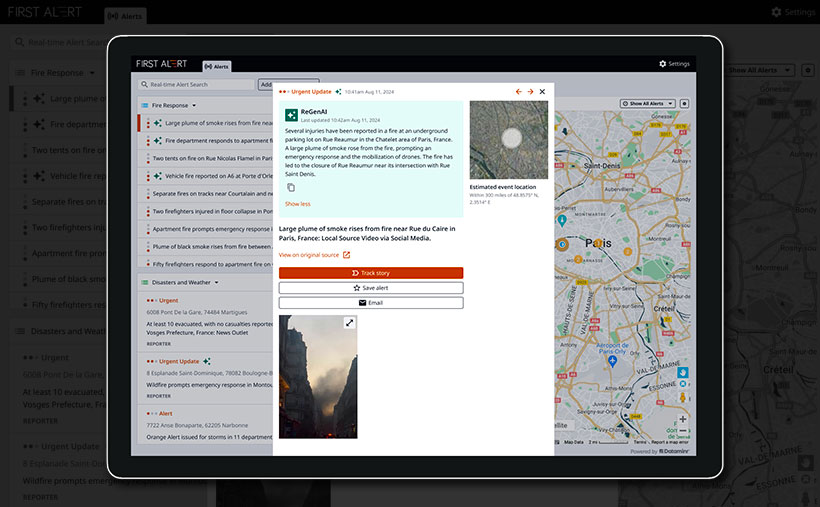
Diplomatic Security + Crisis Management
Maintain awareness of events that can impact the safety of diplomats and embassies or result in diplomatic crises.
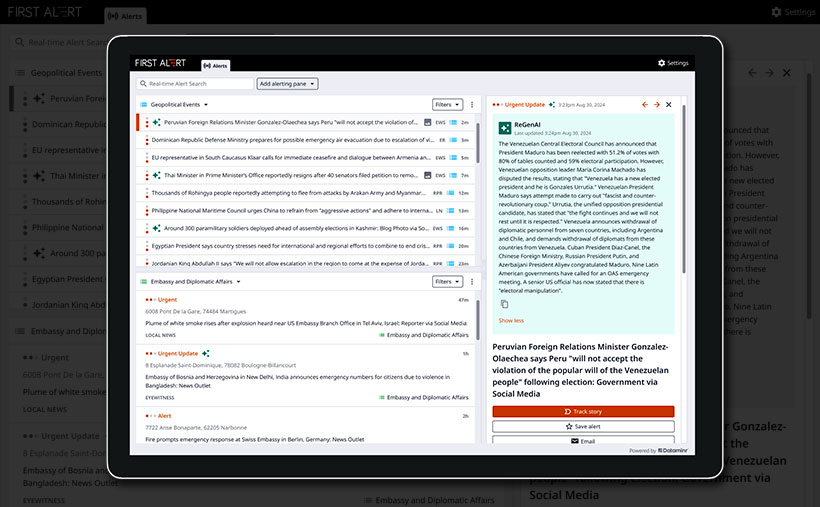
Law Enforcement
Improve the response time of law enforcement officials to public safety incidents and emergencies.
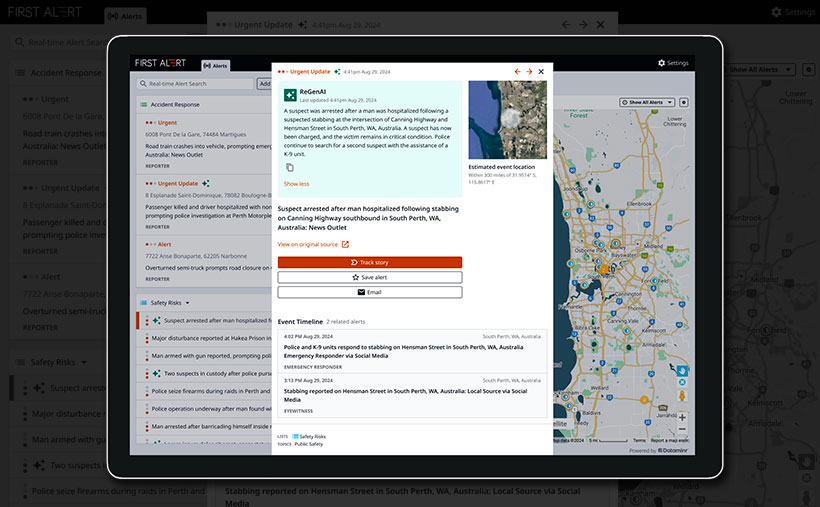
Transportation + Infrastructure Protection
Learn about transportation accidents and critical infrastructure disruptions to better protect the public.
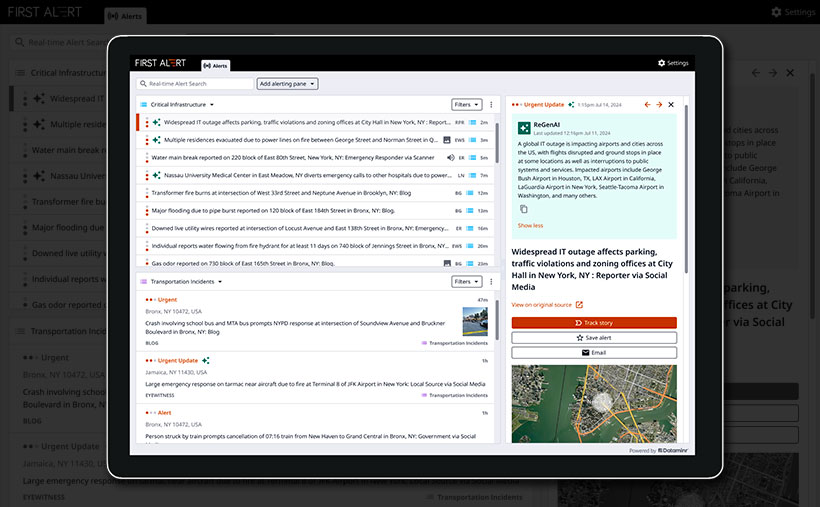
Force Protection
Reduce risk to your mission, people, networks and locations.
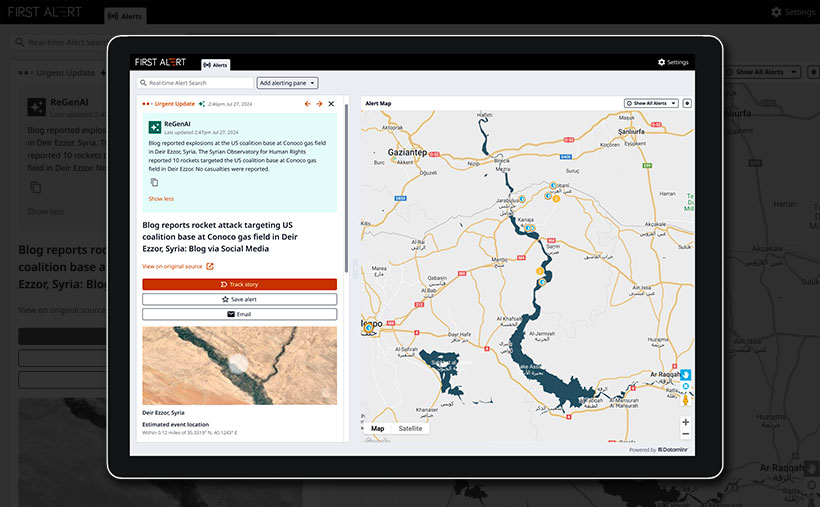
Executive Official Awareness
Equip executive officials with information to follow and manage major events and global crisis response.
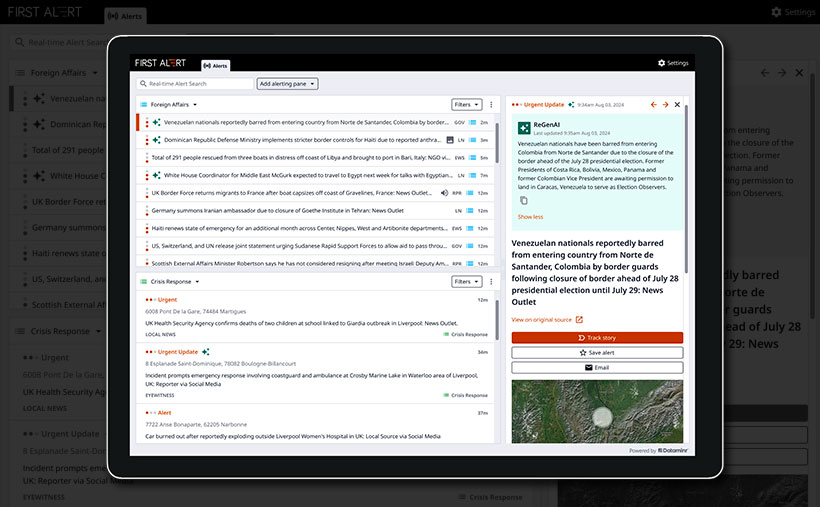




What our customers say